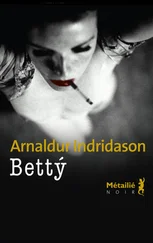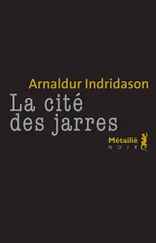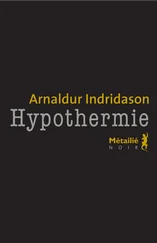‘I’ve already promised that. But why the secrecy? Why don’t you trust the military?’
‘In this instance?’
‘In general.’
‘I think that question could equally be turned on its head,’ said Marion. ‘Why doesn’t the military trust us?’
‘That doesn’t answer my question,’ said Caroline.
‘Fleet Air Command has no interest in answering questions about Hangar 885 and we can’t put any pressure on them unless we know exactly what to ask. We sent a request for access to the area and cooperation with the inquiry into Kristvin’s death. They responded that the matter had nothing to do with them. It looks as if they’re going to be deliberately obstructive when it comes to anything involving US nationals on the base.’
‘Is that so surprising?’
‘No,’ said Marion, ‘maybe not. But we feel they’re being unreasonable. They’ve reached a decision without being prepared to discuss the matter at all. Which makes it look as if they’ve got something to hide.’
‘Like what?’
‘Well, for example, if you could—’
‘Oh no, I’m not getting mixed up in any of this,’ said Caroline. ‘No way.’
‘If, for example, you could find out who was in Hangar 885 the evening Kristvin died,’ persevered Marion. ‘I mean, who does have access to it, in general?’
‘As far as I know there’s not much work going on in there at the moment because they’re installing a fire-extinguisher system. So in the evenings it would be mainly security guards.’
‘If you could find out who they were...’
‘Like I said, you’re putting me in an impossible position. I’m afraid you’ll have to look elsewhere. Sorry.’
Caroline glanced at her watch and said she had to run. Their meeting was over.
‘I’ve never been bowling,’ remarked Marion, looking around the alley one last time before leaving again by the back door.
‘You should try it sometime,’ said Caroline, smiling in spite of her anxiety. ‘It’s fun.’
The house stood strangely dark and silent in the chilly evening air as Erlendur walked up to the door and unlocked it. The last owners had moved out some time ago and put it on the market, and Erlendur had received permission from the estate agent to view it on his own. The agent had told him he couldn’t work out why there was so little interest in the property. Admittedly the house was small by today’s standards and required some modernisation, but it was a solidly built pre-war concrete structure with plenty of scope for a family and a good-sized garden, he said, as if Erlendur were a potential buyer. Erlendur explained that he wanted to view the house for purely personal reasons; that it held memories for him — which was not a complete lie. The estate agent nodded, familiar with such requests. With people who saw their childhood home on the market and went to look round to indulge in a little nostalgia. Unfortunately, he didn’t have time to take Erlendur there himself as it was late and he had to get off home, but Erlendur was welcome to borrow the keys and return them tomorrow. Erlendur had casually mentioned that he was a policeman.
He felt an odd frisson as he stepped into the narrow entrance hall. There was a rail for coats and a wide shelf above it for hats, scarves and gloves. He detected a faint smell of damp and suspected the roof had once leaked. A frosted-glass door led through to a small passage with a kitchen to the right, a sitting room straight ahead and a staircase up to the attic floor where the bedrooms were. He stood for a while in the quiet house, taking in his surroundings by the dim glow of the street lights: the worn carpet, the walls with the lighter rectangles where pictures had been taken down, the curtainless windows.
The kitchen faced the street and had a ‘For Sale’ sign with the estate agent’s telephone number in the window. The fittings, heavy wooden cupboards with worn handles, appeared to be original. There was a small table under the window. He tried to recapture the smells of the past, the echo of voices from the days when all had been brightness and colour in here. Dagbjört’s parents had moved out shortly after her disappearance and the house had undergone two changes of owner since then. Now it stood like a derelict farm in the heart of the city, lifeless and dead. It put Erlendur in mind of his parents’ croft in the East Fjords, which stood exposed to the rain and wind. It gave him the same sense of transience, and he lamented that nothing could halt the passing of time.
The sitting room, which faced the back, had two large windows and a door from which three steps led down to the garden. Erlendur went over to one of the windows and looked out at the trees and shrubs in their winter sleep, the frosty lawn, the rose beds and currant bushes. The garden had been well cared for, the grass cut and neatly edged, the branches pruned.
Dagbjört had been learning the piano. When describing the house to him, her aunt had said that her parents had bought her an old upright that used to stand in the sitting room. Erlendur pictured it against one wall, the three-piece suite in the middle by the windows, and the dining table at the far end. He assumed the piece of furniture that housed the gramophone had also been kept in here. In his imagination he heard the excited chatter of the schoolgirls as they gathered for Dagbjört’s birthday; the strains of ‘Be My Little Baby Bumble Bee’.
He walked slowly up the stairs. They emitted a friendly creaking like a polite reminder to treat the empty house with respect. The landing was carpeted and Erlendur found himself in another narrow passage with three doors leading off it. The one nearest him stood ajar and pushing it open he entered the master bedroom. He didn’t want to turn on the light; it felt somehow like trespassing. There was a faint illumination from the street and now that his eyes had adjusted to the gloom he could see quite well. The ceiling was high next to the landing but sloped down under the eaves on the other side of the room. A dormer window looked out over the street. There was a built-in wardrobe which was full height by the door but slanted down with the incline of the roof.
Next to the master bedroom was a small bathroom with a sink and bathtub and a mirror fixed to a medicine cabinet. Opposite this was Dagbjört’s room which overlooked the neighbour’s garden. After a brief hesitation, Erlendur stepped inside. For years he had been wondering about the girl who used to live here, about her life and fate, and now here he was, standing in her room, and although families had come and gone through the house since then, he felt he had never been closer to her than at this moment.
The first thing he noticed was that the view from the window was partly obscured by a stand of tall fir trees belonging to the next-door garden. Walking over, he looked out and saw that the plot on that side had long been neglected, the trees and shrubs allowed to grow wild and unchecked. The firs would have been considerably smaller a quarter of a century ago, so Dagbjört would have had a good view of her neighbour’s house. Erlendur wondered if the same people still lived there. He could just glimpse the upstairs windows but couldn’t see any lights.
He imagined that her bed must have been under the window, so she could have gazed out at the moon and stars and confided her secrets to them. He ran his hand over the cold walls, feeling the bumps and small cracks, and before he knew what he was doing he had begun to tap them and listen. The exterior walls were made of whitewashed concrete, the interior ones of wood, clad in some sort of insulating material. In those days insulation had sometimes consisted of no more than old newspapers and other rubbish, and Erlendur thought this might be the case here, judging by the hollow sound the walls gave off. He noticed a small door under the eaves which he assumed led to a storage space. The floor was made of varnished boards and he tapped those here and there as well. He didn’t know what he was looking for. He hadn’t come here to search for anything in particular, only to breathe in the atmosphere and acquaint himself with the house where she had lived. Well, he had done that now and had no wish to linger; he needed and intended to leave, but before he did so he would just check what was behind the little door under the eaves.
Читать дальше












